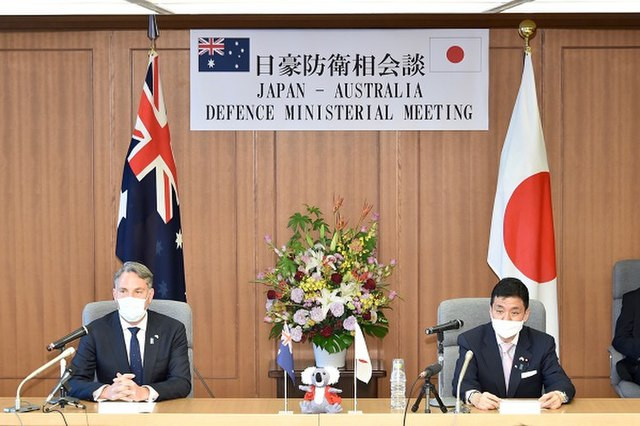Japan has secured its largest-ever defense export deal, winning a A$10 billion ($6.5 billion) contract to supply the Australian Navy with 11 Mogami-class multi-role frigates, a move seen as a strategic push to deepen military ties between the two U.S. allies amid growing Chinese assertiveness in the Indo-Pacific.
Under the agreement announced Tuesday, three of the advanced warships will be built in Japan by Mitsubishi Heavy Industries (MHI) starting in 2029, with the remaining eight to be constructed domestically in Australia. The fleet will replace Australia's aging Anzac-class frigates and bolster its maritime capabilities across the Indian and Pacific Oceans.
"This is clearly the biggest defense industry agreement that will ever have been struck between Japan and Australia," said Australian Deputy Prime Minister and Defense Minister Richard Marles. "It's really one of the biggest defense exports that Japan has ever engaged in."
The highly automated Mogami-class frigates, which require a crew of just 90 sailors, feature expanded range and vertical launch systems that can fire up to 128 air defense missiles. "It takes our general purpose frigates from being able to fire 32 air defence missiles to 128," said Pat Conroy, Australia's Minister for Defense Industry.
Australia chose MHI's design over Germany's Thyssenkrupp Marine Systems, whose MEKO A-200 was seen as a cost-competitive alternative. Conroy said the Japanese bid prevailed on "cost, capability and meeting our schedule of delivery."
The frigates will be tasked with protecting vital shipping lanes and defending Australia's northern maritime approaches. The move is part of Canberra's broader A$55 billion investment into its surface combatant fleet over the next decade.
The deal marks a breakthrough for Japan's defense industry, which has limited experience with overseas military projects. Defense Minister Gen Nakatani hailed the agreement as a milestone in strategic cooperation. "We welcome the decision by the Australian government as a major step to further elevate Japan's national security cooperation with Australia, which is our special strategic partner," he said during a briefing in Tokyo.
Shares in MHI rose 5.7% in Tokyo on news of the agreement. Austal, which is expected to construct the eight Australian-built frigates in Western Australia, closed up 7.94% after Canberra pledged ongoing support for domestic shipbuilding.
MHI's win helps erase the sting of its failed 2016 submarine bid, which was lost to a French company before Canberra scrapped that project in favor of the AUKUS pact with the U.S. and U.K. Japan's defense ministry said the new frigate collaboration will improve interoperability and allow the two navies to operate on shared systems and platforms.
MHI CFO Hiroshi Nishio said the company will focus on establishing local maintenance operations and engage with Australian firms. "We are currently focusing on establishing maintenance operations in Australia for the ships built here and are beginning communication with local companies," Nishio said following the firm's latest earnings release.
Officials noted that a finalized commercial contract will likely be signed in 2026, with pricing, logistics, and production transfers still under negotiation.






